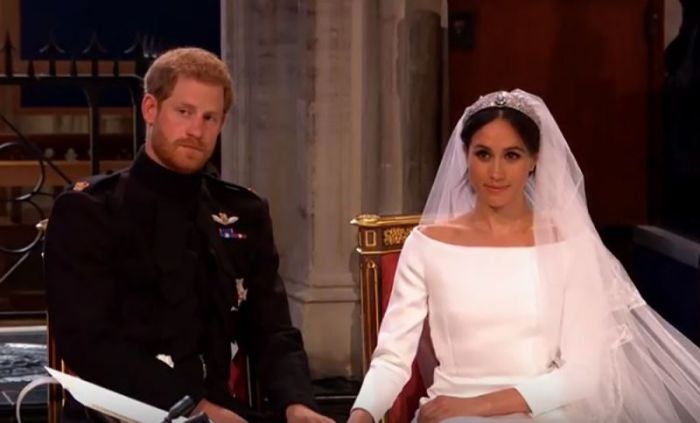Royal Wedding and Episcopal Love

The royal wedding, in hymn, liturgy, prayers & sermon, in a gorgeous cathedral, presented a beautiful picture of Christianity to hundreds of millions of viewers, for which thank God. Also thank Him that the British monarchy and established church, at their best, encapsulate transcendent decency and godly order in an always needful world.
The wedding sermon from Episcopal Church USA Michael Curry justifiably has earned rave reviews for compelling delivery and a love-soaked message very appropriate for a wedding, royal or otherwise. He was quite soaring in his vision of love's power:
Think and imagine, well, think and imagine a world where love is the way. Imagine our homes and families when love is the way. Imagine neighborhoods and communities where love is the way. Imagine governments and nations where love is the way. Imagine business and commerce when love is the way. Imagine this tired old world when love is the way, unselfish, sacrificial redemptive. When love is the way, then no child will go to bed hungry in this world ever again. When love is the way, we will let justice roll down like a mighty stream and righteousness like an everflowing brook. When love is the way, poverty will become history. When love is the way, the earth will be a sanctuary. When love is the way, we will lay down our swords and shields down, down by the riverside to study war no more. When love is the way, there's plenty good room, plenty good room, for all of God's children. Because when love is the way, we actually treat each other, well, like we are actually family. When love is the way, we know that God is the source of us all and we are brothers and sisters, children of God. My brothers and sisters, that's a new heaven, a new earth, a new world, a new human family.
Love when understood as divine power is indeed a mighty force for transformation. Curry's vision of a fully redeemed earth without poverty or war is traditionally understood by the church as an eschatological event consummated by God Himself, not achieved by the power of human love.
A former Chaplain to the Queen offered this critique:
And over against Bishop Curry's great sales pitch, only a few will hear and consent to be transformed. Only a few will follow and find the pearl of great price. The others will demand utopia on their own terms, and will tragically fall into a dystopia of distress, a world where their longings increase in addictive appetite and the become longings that are never and can never be satisfied.
Yes, Bishop Curry, as St. John wrote, God is love. But unlike you, St. John defines Love and shows us that it is a longing and meeting of longing that travels the way of the cross, the way of renunciation.
Many have acclaimed Curry's sermon for offering a positive alternative to more conservative Christianity. But these celebrants may forget that Curry's denomination is literally dying, as are all liberal Protestant communions that share its theology of amorphous love without judgment.
Curry's sermon used the term "unconditional love," a phrase developed and popularized by psychologist Carl Rogers, as Methodist theologian Thomas Oden recalled from the 1960s:
At the same time I was writing on the uncharted theme of unconditional acceptance, a theme I found in Carl Rogers. I argued that it was a fitting description of the forgiving God, and that unconditional love corresponded directly with commonly acknowledged assumptions in effective psychotherapy.
Soon I began to hear the phrase unconditional love on the lips of homilists and priests as applied to God... The phrase quickly entered into the common vocabulary of psychological literature, sermons and books, especially for pastoral writers struggling to find ways of making God's forgiveness plausible...
Carelessly, I had invited pastors and theologians to equate the unconditional positive regard that had proven to be a reliable condition of effective psychotherapy with God's unconditional forgiving love for humanity.
In doing so, I had absentmindedly and unfortunately disregarded all those powerful biblical admonitions on divine judgment and the need for admonition in pastoral care. Few of these homilists mentioned the wrath of God against sin as Jesus did.
I had drifted toward a Christ without a cross and a conversion without repentance. It still makes me wince to hear sermons today about God's unconditional love that are not qualified by any admonition concerning the temptation to permissiveness.
There may have been aspects of Curry's sermon that caused carefully listening traditionalists to wince. Yet the Gospel's power is such that even kernels of it can save and transform. Let's hope such kernels, sumptuously wrapped, were transmitted globally by the royal wedding.




























